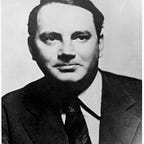Boardinghouse Guests: The Dixie Tenor
Thomas Wolfe gives us a fun look at early entertainers in Asheville. In Look Homeward, Angel Eugene Gant walks past the “Orpheum Theatre” where the sign announced, “All This Week Gus Nolan and His Georgia Peaches.” His sister Mabel, portrayed as Helen Gant in the novel, is part of the performing team of Gant and Hines known as “The Dixie Melody Twins.” “They sang together at moving-picture theatres in country towns” … they “moved on their jagged circuit through the South.” Staying in Eliza Gant’s Dixieland boardinghouse is “…the chorus of ‘Molasses’ Evans and His Broadway Beauties, booked out of Atlanta, Georgia, by the Piedmont Amusement Agency.”
It was not unusual for young Thomas Wolfe to observe entertainers staying in his mother’s house. In the Old Kentucky Home boardinghouse guest register in 1911 we find Mr. & Mrs. Harry Bickford who list their home as Little Rock, Arkansas. Harry is appearing during the last week of August 1911 at the Theato and Airdome theaters where they also show motion pictures. The Theato had recently opened at 18 N. Pack Square, and the Airdome was an open-air screened tent for vaudeville shows at the corner of Haywood and Walnut Street. Both owned by the Asheville Amusement Company.
Harry E. Bickford toured the southern circuit from Key West to Atlanta, Biloxi to Baltimore, between 1911 and 1914 as The Dixie Tenor. He made several appearances in Asheville. At the end of August 1913, the Asheville Gazette-News reported Mr. Harry Bickford appearing at the Galax and Princess Theaters. The story declared The Dixie Tenor is a big attraction. He is well known all over the country as lyric tenor, soloist, and yodeler. The Galax Theatre had just opened at the end of July 1913 on Patton Ave. with popular local girls Mabel Wolfe and Pearl Shoppe singing. The Princess Theatre operated at 9 NW Pack Square from 1912 to 1925.
In Oct 1913, The Classic “The Daylight Theater” promoted Harry Bickford who is… “well known throughout the entire south, and has a personality that seems to be so much in harmony with the southland’s gentility, and being so fond of dear old Dixie he has been therefore known as The Dixie Tenor.” Business must not have gone well at this theater. We see in the Nov 1913 Citizen Times newspaper a printed notice that Harry E. Bickford has severed his connection with the co-partnership known as The Classic Theater and will no longer be responsible for its debts. We find him one last time in Asheville for three days in early January 1914 at the Majestic Theater.
So, it becomes evident, Harry the Dixie Tenor, was not actually a southerner, just “fond of dear old Dixie.” We find him in the 1910 Census, a boarder in Atlanta, his occupation listed as singer, and born about 1884 in Indiana. In the 1900 Census he was attending school in Massachusetts, his father a native of New Hampshire. Beyond this, we did not learn much about Harry’s life. He appears to have one small Broadway credit from a part in a musical in 1904 titled “Him, Me and I.” He is traveling as a member of the Olympia Opera Company in the Summer 1914, then disappears from newspapers.
It looks like the moniker “The Dixie Tenor” was just a popular promotional tool for solo vaudeville singers around the country. In 1910 at Natchez, Mississippi, Hampstead Bentley appeared as The Dixie Tenor at the Star Theater, singer of high-class ballad and songs. In 1911 he appears in Oklahoma as “That Dixie Tenor,” formerly of Carter’s Original Dixie Minstrels. Also, in 1910, Dick Carson appeared with new songs as The Dixie Tenor in Alexandria, Louisiana’s Electralite Theater. In 1925 Guy Massey, The Dixie Tenor, is at Forth Worth, Texas on radio and the vaudeville circuit. In 1928 Charles Willis is The Dixie Tenor in Logan, Utah at the Capital Theater. At the same time, in 1928 Charlie Barnes appears in Indianapolis as The Dixie Tenor. Perhaps one of the most famous of the Dixie tenor singers was Dell Reed who toured radio stations in Illinois and other mid-western states from about 1926–1936. Originally from Louisville, Kentucky he made a big splash in November of 1936 when, at age 28, he jumped from the 4th floor of the LaSalle Hotel. Apparently, he was despondent over a letter he received from a woman in Chicago.
